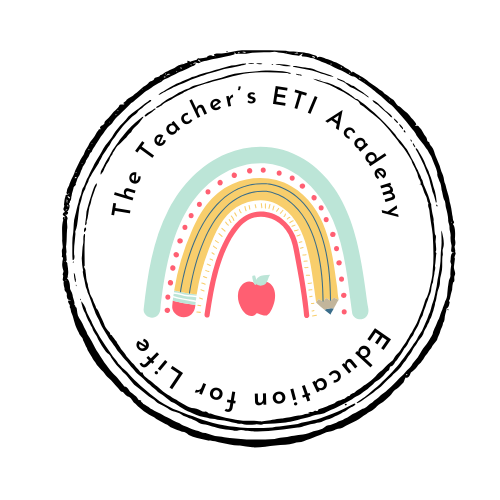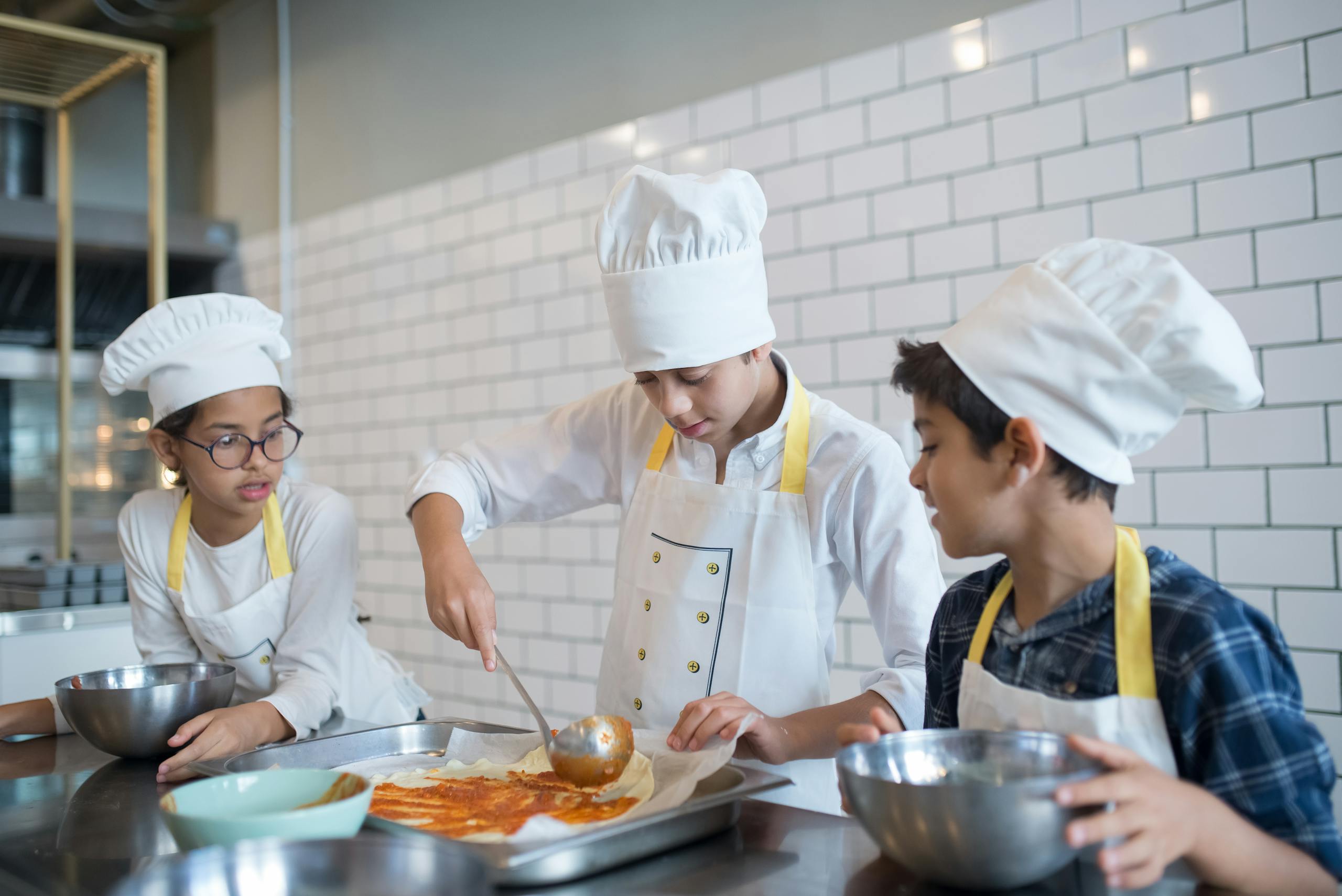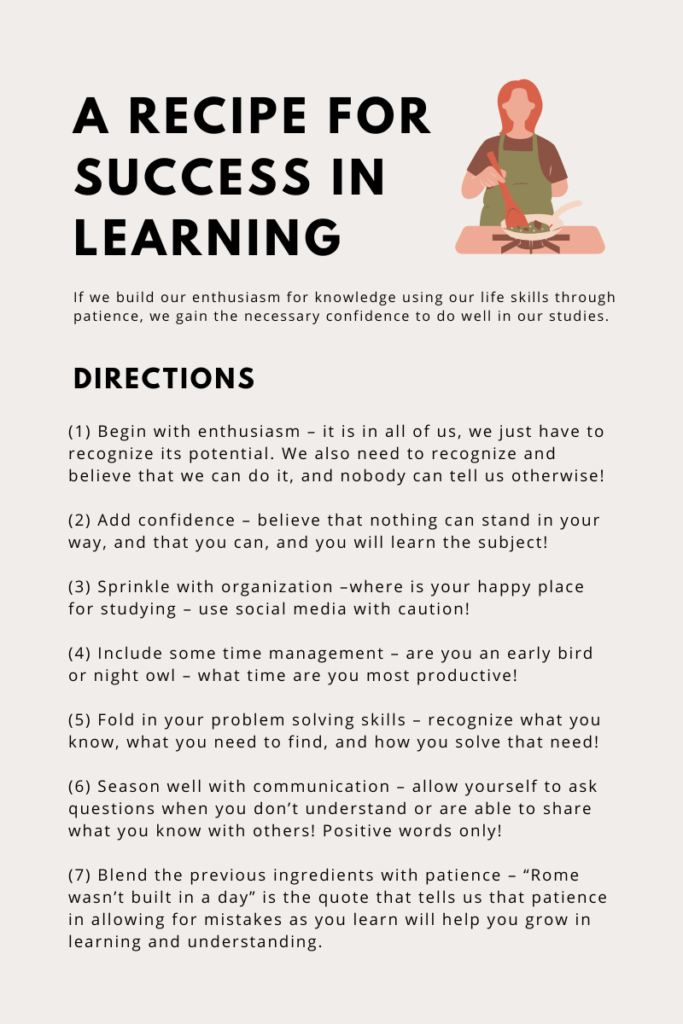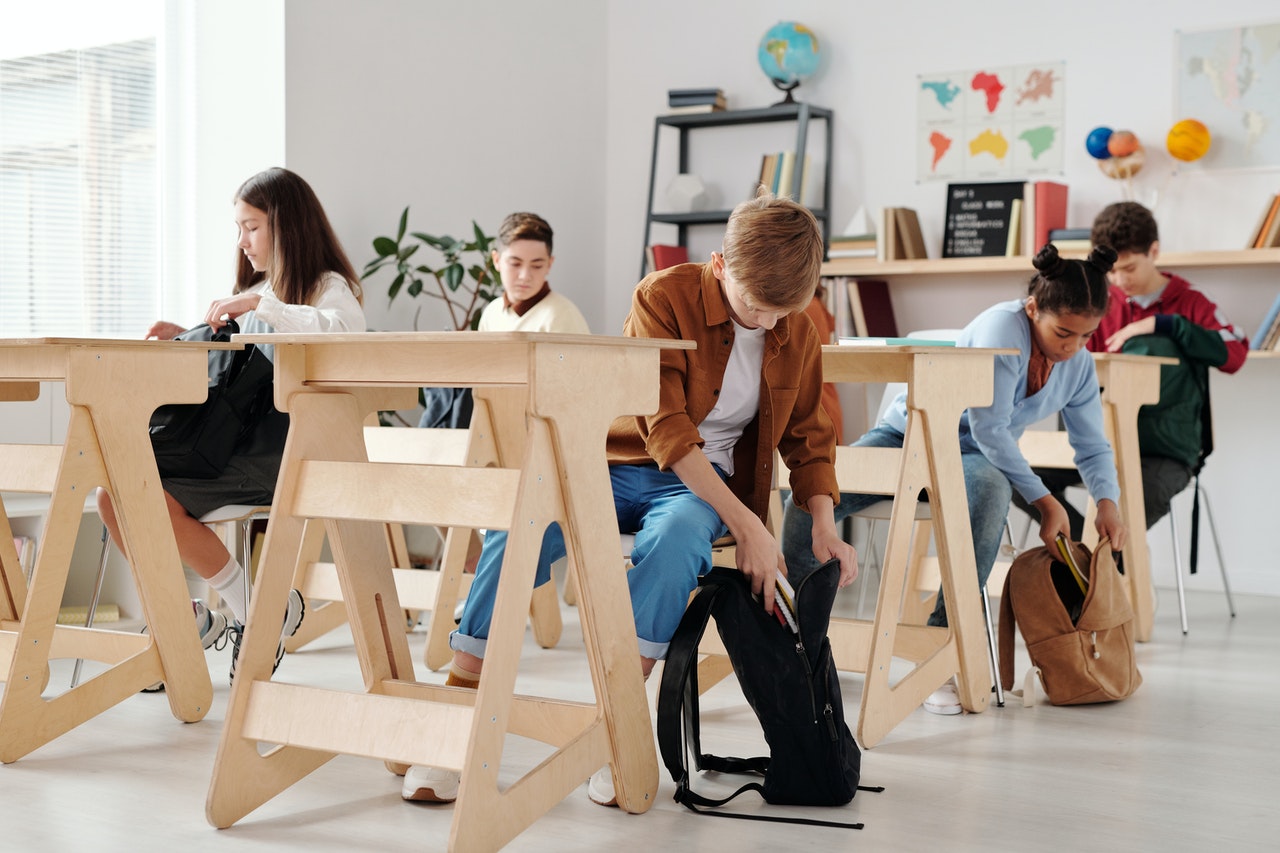5 Life Skills Needed For Classroom Learning
In this article, we’ll explore how life skills needed for classroom learning are actually learned in the kitchen. These skills can then seamlessly transfer to the classroom, helping students become more effective learners and confident individuals.
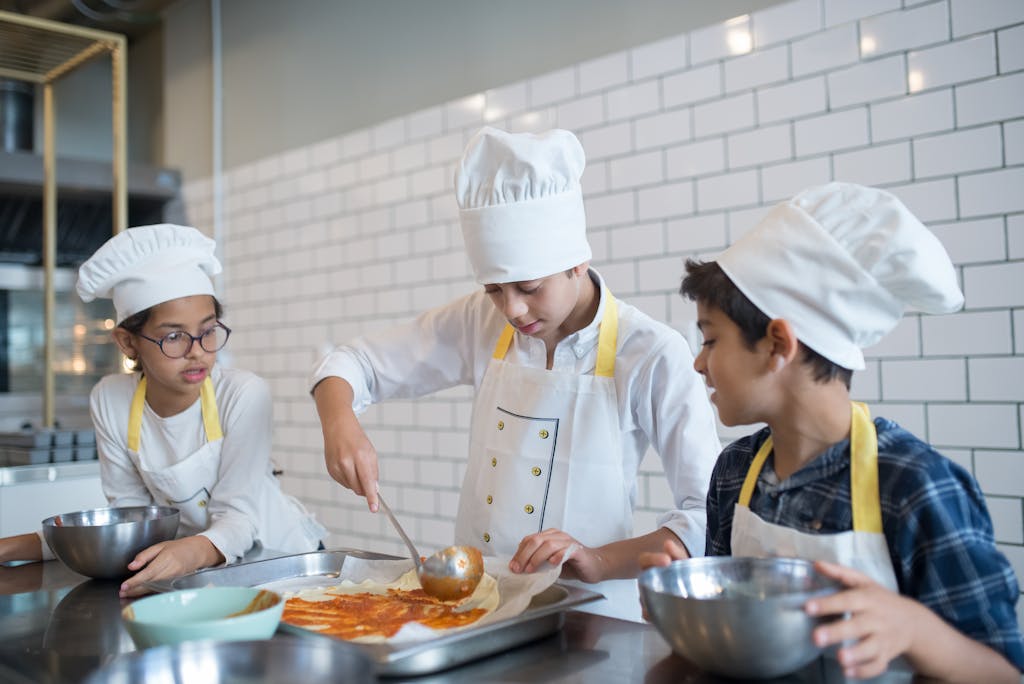
Life skills are essential tools that children can carry with them throughout their lives, both inside and outside the classroom. Interestingly, the kitchen provides an excellent setting for children to develop these skills in a hands-on way.
As they cook, bake, and prepare meals, kids can practice key life skills such as problem-solving, communication, organization, critical thinking, and time management. These skills not only help children become more independent and self-reliant but also lay a solid foundation for success in the classroom.
Preface: When we refer to the classroom in this article we imply the traditional face – to – face classroom, online classroom, as well as the hybrid classroom.
If we make a list for groceries to help keep us organized when grocery shopping, students can also use our free mental health checklist to keep themselves aware of the skills they are building with each lesson.
Just sign up below to get access to our free checklist to share with students! It makes a great starting piece for conversations in the classroom.
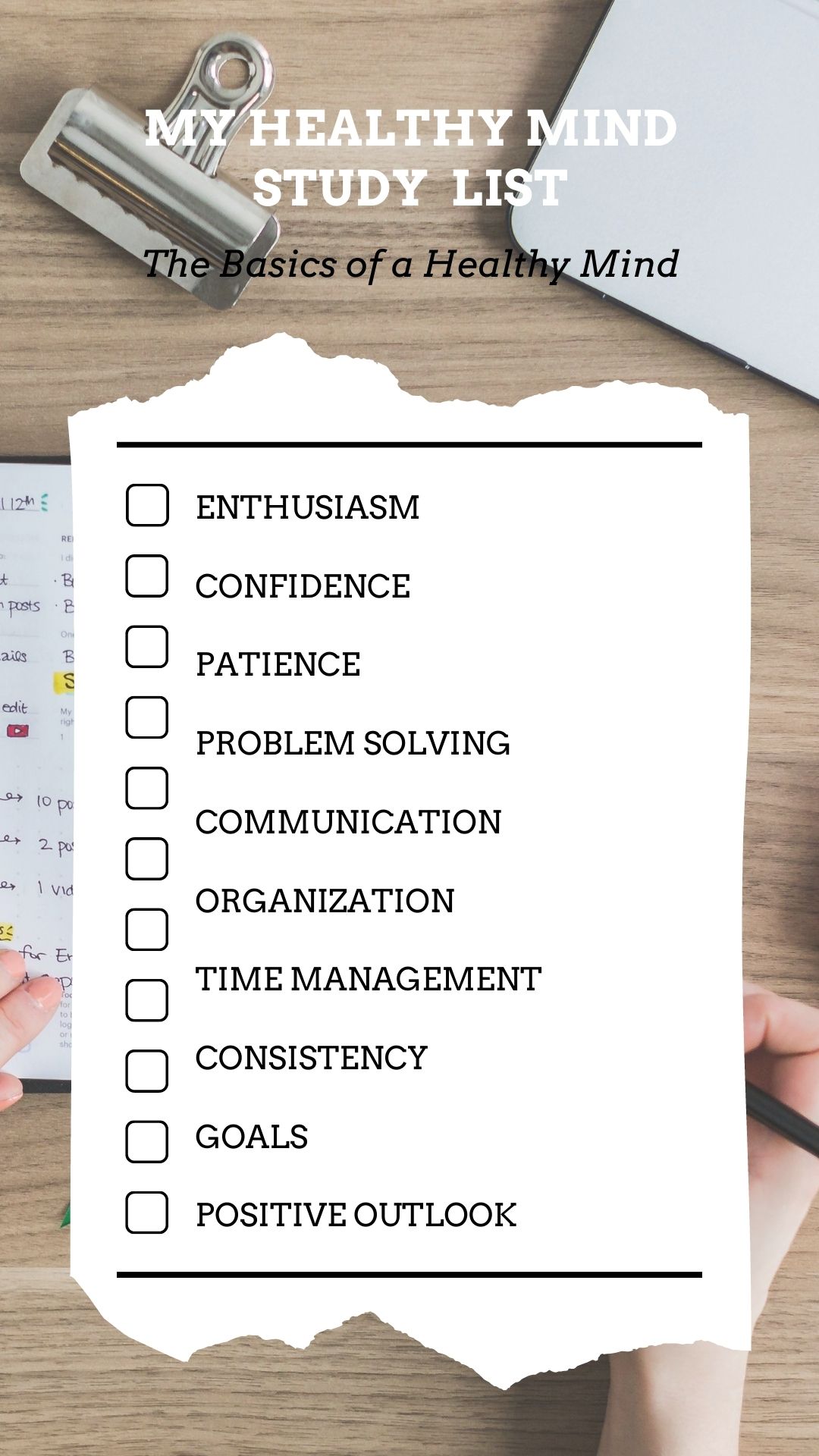
Building Confidence in the Kitchen!
Building confidence in the kitchen is a great way for students to develop life skills that extend beyond just cooking. When children are given the opportunity to follow recipes, experiment with different ingredients, and prepare meals, they build a sense of independence and accomplishment.
The kitchen encourages trial and error, allowing students to learn problem-solving as they navigate challenges like timing or adjusting flavors.
Let’s build recipes for success in learning like we build tasty recipes in the kitchen. Click on the image to access this guide to share with students.
Through tasks such as measuring, following instructions, and managing multiple steps in a recipe, students also improve their organization and time management skills. As they successfully complete a meal, their confidence grows, making them more willing to take on new challenges both in the kitchen and in the classroom.
5 Life Skills Needed For Classroom Learning (Recipes) Video
We can gain life skills from kitchen to classroom that can help us throughout our lives!
Examples include; how to organize our time, follow directions, problem solve, and how to communicate when it comes to building recipes.
Remember to like, share and subscribe to The ETI Academy YouTube channel!
Keep reading as we show you how important life skills such as; organization, time management, self-reliance, problem solving, and communication can transfer themselves from kitchen to classroom.
The Kitchen to Classroom Video
Watch the video below to get a sneak peak at the five ways the kitchen inspires education!
The Five Ways The Kitchen Inspires Education
Here now are the five ways we believe the kitchen inspires education. When we look to the kitchen to build important skills, we can easily see how these skills can be used in the classroom.
Click to watch the video below highlighting the five ways to transfer your skills from the kitchen to the classroom and in life!
I. Building Organizational Skills
From kitchen to classroom, the kitchen inspires education through building our organizational skills.
Organization in the kitchen means having all the ingredients planned, prepared, and ready to be assembled!
Being organized makes meal time preparations easier to follow and understand when you have all the ingredients ready as you follow the steps to putting them altogether.
In the classroom, this means having all materials necessary for the lesson planned, prepared, and ready to be used.
In school, teachers and students need to keep their supplies, goals, and thoughts organized.
This helps sets the stage for important educational strategies to used by both teachers and students in order for both to get the most of out the lesson when it comes to teaching and learning.
Click here to learn more about how to stay organized in school.
II. Establishing Time Management Skills
From kitchen to classroom, time management, as any great cook will tell you, is vastly important in the kitchen!
We all know the importance of time management in following directions to a recipe, and the results that can happen when we don’t pay attention to time.
We could under cook, or over cook the meal, as bad consequences. When we do pay attention to time, we end with amazing results (the meal), and a recipe we can cherish for years to come.
A simple example would be boiling an egg. You may not get it right the first time, but once you pay attention to the timing it takes to boiling eggs, you’ll get it right every time!
Similarly when we learn the value of time management, in the classroom, much more can be done by both teachers and students.
This doesn’t necessarily mean getting more paperwork done, but instead more time to discuss the lesson, review the lesson, and present other creative means to enjoy the lesson.
We can turn boiling an egg into many fun and exciting science, math, and language activities.
How do you find boiling an egg as it relates to science, math and language?

Math; it relates to numbers, both for the clock timing, and temperature, as well as measuring how much water is actually needed.
Science; it relates to how heat and temperature work.
Language; communicating how to properly boil the egg, which can bring about so many different emotions!
Students click here to learn more about how to better manage your time in school.
Teachers click here to learn more about how to better manage your time in school.
III. Building Critical Thinking Skills
From kitchen to classroom, when we become more independent we learn to depend on our own without assistance from others i.e. building our critical thinking skills.
How does one get there?
By simply following the necessary steps or directions to get to where they need to be.
In the kitchen, this relates to understanding how one cooks or bakes!
Being able to skillfully understand how to put together a food recipe so that everything comes together peacefully and smoothly, allows others to learn and follow along.
When we follow tried and tested recipes, we become more independent in creating and exploring different ways to create our own tasty dishes each and every time!
In the classroom, this relates to building critical thinking skills.
Students can learn to become more self-reliant when they are afforded the opportunity to explore, ask, and present new ways of thinking on different educational topics.
When the class runs as it should, students can benefit from the time given to teaching and learning the lesson for the day.
When the class runs as it should, students can benefit from the time given to teaching and learning the lesson for the day.
By including students they value the rewards and consequences even more, and so everyone in the class benefits.
IV. Improving Problem Solving Skills
Problem solving in the kitchen can result in some pretty amazing dishes!
From having to come up with ingredients to replace initial ingredients we don’t have, or for changing the recipe to meet dietary restrictions, if done properly problem solving in the kitchen is one amazing skill!
In the classroom teachers and students may come across a whole host of problems. For example, materials may not be ready and available to use, or there could be problems with technology (no internet = no online classes).
If problems in the classroom are not quickly resolved, there may be greater issues with classroom management.
Classroom management may not be effective, and students may have a hard time connecting to teachers as they try to explain and understand the lesson.
The best approach to problem solving starts with a positive mindset, followed by a three step process. First, recognize details about the problem. Second, understand what you are looking for. Finally, use the best approach to the solution.
V. Enhancing Communication Skills
Communication in the kitchen can be seen as reading the recipe guide, communicating verbally how to follow the directions, or completing the recipe.
Explaining while you cook may look like an easy task, but as anyone who has tried and succeeded will tell you, it’s a lot harder than it looks!
In the classroom, improving language skills through the four means of communication is one of the most important goals for both teachers and students. With the right choice of words, communication in any form will always be at its best.
How can we improve our communication skills in the classroom?
- Don’t be afraid to ask questions
- Learn to listen to others are saying
- Consider your words when you are explaining your thoughts to others.
Related Topics
For more topics related to education; click to read more from EduKitchen & The ETI Academy
- K – 12 Free Resources for Classroom Learning
- The Main Focus of Teaching Educational Strategies
- Tools to Help Build Life Long Learning Skills as Part of Character Education
Join Us Today!
Final Thoughts…
One important thing to remember when you find yourself either in kitchen or classroom is to work smarter, not harder.
What does ‘work smarter, not harder’ mean when we know hard work helps determination?
It means that we focus our energy in using the proper skills (like organization, problem solving, communication, and in following directions) so that saves us time and energy.
When we save energy we build our confidence and enthusiasm for the time we spend in the kitchen or the classroom! These are just some of the important ways to see how the kitchen inspires education.
Find more about The ETI Academy by clicking here.
Share Your Thoughts
Let us hear your thoughts on our 5 reasons why the kitchen inspires education and whether you agree or disagree with our reasons.
